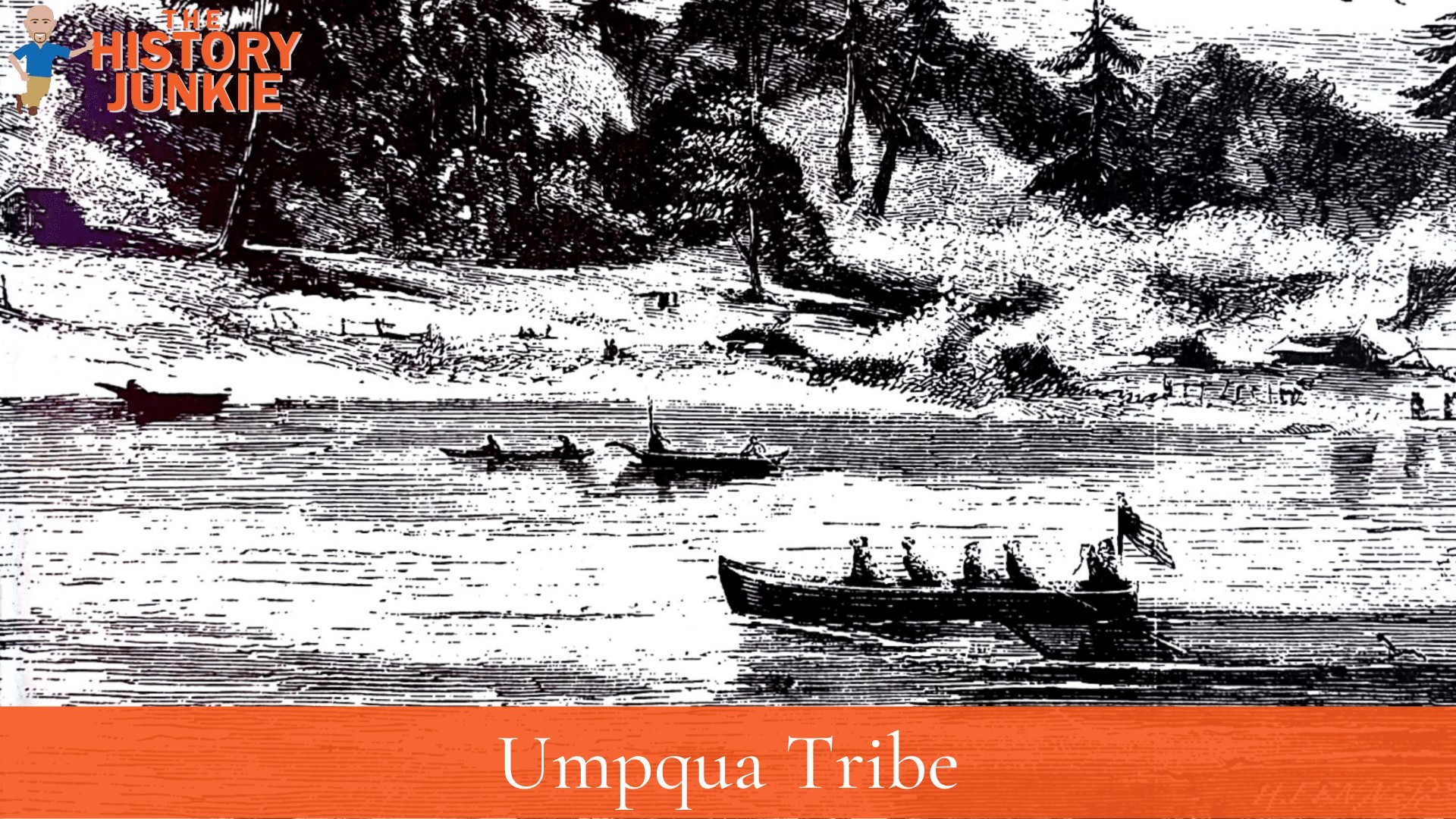The Umpqua tribe was a Northwest Indian Tribe that was located in south-central Oregon in an area now known as the Umpqua Valley.

The Umpqua people actually consist of around four (possibly more) tribal groups that live in the Umpqua River Basin
- Lower Umpqua Tribe - spoke the Siuslaw language
- Upper Umpqua Tribe - spoke the Upper Umpqua language
- Southern Molalla - spoke the Molalla language
- Cow Creek Band - spoke the Takelma language
The tribes of the Umpqua people lived in the Umpqua Valley for thousands of years prior to the arrival of the Europeans and, eventually, the American settlers.
History of the Umpqua Tribe
The Spanish Conquistadors had been sailing up and down the Pacific coast for a couple of hundred years before the Umpqua had their first contact with them in the late 1700s.
Due to living in the Northwest, they had been shielded from European expansion, which many Northeast Indian Tribes did not have.
Their first contact was with fur traders in the late 1700s. As the decades passed, the Hudson Bay Company saw an opportunity in the northwest fur trade and began to pursue regular trade with the Umpqua people aggressively.
In 1836, Fort Umpqua was built at the mouth of Elk Creek and became a primary location of trade between the Native Americans and the settlers. The traders and natives had a good relationship with few conflicts.
However, according to Oregon explorer, there was one notorious conflict between the tribe and Jedidiah Smith:
An especially notorious conflict occurred in 1828 between the Lower Umpqua Indians and a party of fur traders led by Jedediah Smith. Due perhaps to inappropriate advances of Smith's men toward Indian women, or due perhaps to the alleged theft of an ax by a young Indian, a Lower Umpqua man was killed by Smith's party, for which the Lower Umpquas retaliated and killed 15 of the 19 of Smith's men.
By the mid-1850s, the fur trade had been exhausted and changed the entire landscape of the environment.
America would be thrown into a Civil War and, after its end, begin to expand west. Soon, the tribes in the area would be overrun.
There would be some conflicts, but the resistance of these people was futile. America was quickly becoming an empire, and its economy was much more robust.
